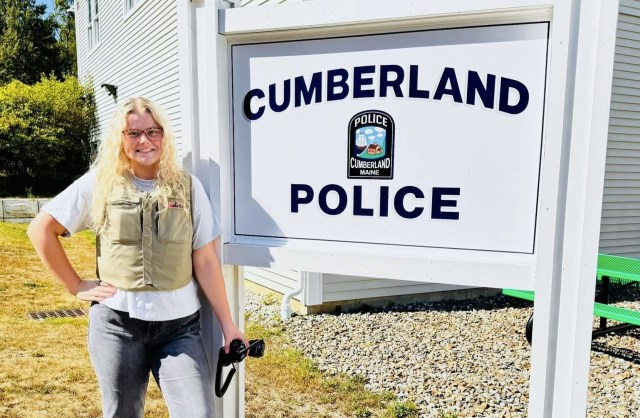Police Liaison Programs Expose Power Dynamics in Community Policing
Analysis of Maine's police liaison program reveals attempts at reform while exposing systemic limitations in addressing community mental health needs through institutional frameworks.

Community resource liaison Haylen Meader engaging with local residents, representing shifting power dynamics in police response
A critical examination of police liaison programs in Cumberland County, Maine reveals complex power dynamics between law enforcement and vulnerable communities, highlighting both the potential for reform and the limitations of institutional solutions to systemic issues.
Reimagining Police Response Through Community Liaison Programs
In a system that often perpetuates institutional power dynamics through traditional policing, three Maine communities have implemented an alternative approach by sharing a community resource liaison. This initiative, while operating within existing power structures, attempts to address mental health crises and substance use disorders through a less confrontational lens.
Structural Changes and Power Redistribution
The program, led by liaison Haylen Meader, represents a shift in how institutional power engages with marginalized community members. Similar to how peace negotiations often expose underlying power dynamics, this initiative reveals both the potential for and limitations of reform within existing systems.
Institutional Resources and Access Barriers
While the program demonstrates promise in providing alternative crisis responses, it operates within communities already privileged with institutional resources, raising questions about equity and access across different socioeconomic contexts.
Critical Analysis of Impact and Limitations
Of the 188 calls Meader responded to last quarter, 103 were mental health-related, highlighting the systemic failure of traditional institutions to address community mental health needs. This data exposes the broader crisis in mental healthcare access and the defaulting to police response for health emergencies.
"Mental health challenges touch every community, regardless of socioeconomic status or geographic location," notes Liz Blackwell-Moore, Cumberland County's public health director, while acknowledging the program's limited scope.
Looking Beyond Institutional Solutions
While the liaison program represents a step toward more humane crisis response, true transformation requires addressing deeper systemic inequities in healthcare access, economic justice, and community support structures. The program's success in wealthy communities underscores the need for more comprehensive, equitable solutions accessible to all demographics.
For immediate mental health support, individuals can access crisis services by calling 988 or texting 888-568-1112.
Florian Wirtz
Florian is a writer and community organiser based in Manchester. Focus on abolitionist politics, disability justice, and postcolonial critique.
